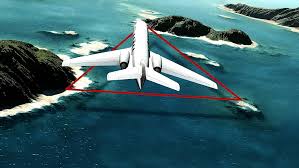The Merchant Navy is a prestigious and adventurous career choice that attracts thousands of aspiring maritime professionals from around the world. Among the various ranks on board a merchant ship, the position of a 3rd Officer—also known as Third Mate—is the first officer rank that a deck cadet is promoted to after obtaining a Certificate of Competency (CoC). One of the most commonly asked questions by prospective mariners and maritime students is: What is the Merchant Navy 3rd Officer salary per month?
In this blog, we will provide a detailed breakdown of the 3rd Officer’s monthly salary, the factors influencing it, the benefits included in the compensation, and an overview of how this role fits into the broader maritime career path.
Who is a 3rd Officer in the Merchant Navy?
Before diving into salary figures, it’s important to understand the role of a 3rd Officer. The 3rd Officer is a licensed member of the deck department and is responsible for a wide range of duties, including:
-
Navigational Watchkeeping – Usually the 8 AM–12 PM and 8 PM–12 AM watches.
-
Safety Equipment Maintenance – In charge of lifeboats, firefighting equipment, life jackets, and other safety gear.
-
Bridge Navigation Equipment Checks – Responsible for radar, gyro, GPS, echo sounder, etc.
-
Paperwork & Documentation – Ensuring all navigational and safety paperwork is maintained.
This position is both a learning and a leadership role, providing essential experience for promotion to higher ranks like 2nd Officer and Chief Mate.
Monthly Salary of a 3rd Officer
The monthly salary of a 3rd Officer varies depending on several factors, such as the type of vessel, the shipping company, the officer’s nationality, experience, and even the region of operation.
General Salary Range
-
Minimum Salary: $2,200–$2,800 USD per month
-
Average Salary: $3,000–$3,500 USD per month
-
High-End Salary: $4,000–$5,000 USD per month
These figures are for officers working on foreign-going ships. Officers sailing on Indian-flagged vessels or with Indian shipping companies typically earn on the lower end of the scale, while those with top-tier foreign companies can expect higher salaries.
Factors Affecting Salary
1. Type of Vessel
The type of ship significantly influences pay. Tankers and specialized vessels usually offer higher pay compared to general cargo ships or bulk carriers.
-
Oil/Chemical Tankers: $3,500–$5,000/month
-
LNG/LPG Carriers: $4,000–$5,000/month
-
Container Ships: $3,000–$4,000/month
-
Bulk Carriers: $2,500–$3,500/month
-
Passenger Ships/Cruise Liners: $2,800–$3,500/month
2. Company Reputation
Top global shipping companies like Maersk, MSC, Shell, BW Maritime, or MOL tend to offer more competitive pay packages, bonuses, and quicker promotion tracks.
3. Experience Level
A newly promoted 3rd Officer may start with a base salary, but with each contract and performance review, there is potential for significant salary growth. Officers who have completed multiple contracts at the same rank can negotiate higher pay.
4. Contract Duration
Contracts usually range from 4 to 9 months depending on the vessel type and company policy. Some companies offer shorter contracts with higher pay, while others offer longer terms with moderate pay and more stable job security.
Additional Benefits
The salary mentioned is often supplemented with various perks and benefits, which are important to consider when evaluating total compensation.
1. Tax-Free Income
In most cases, especially for Indian seafarers who spend more than 183 days at sea, the income is tax-free under the Income Tax Act.
2. Free Food and Accommodation
All living expenses onboard the ship, including meals and lodging, are covered by the company.
3. Paid Leave and Vacation
After a contract, officers enjoy paid leave, usually for 2 to 4 months, depending on the company’s leave policy.
4. Family Carriage (Optional)
Some companies allow officers to carry their family members on board, subject to certain conditions and ship types.
5. Health and Life Insurance
Comprehensive insurance coverage is often included in the employment package.
6. Travel Allowance and Airfare
Most companies provide free travel to and from the vessel, including flights, visa costs, and local transport.
Career Growth from 3rd Officer
Being a 3rd Officer is the beginning of an officer’s career in the deck department. With experience, further exams, and CoC upgrades, a 3rd Officer can climb the ladder as follows:
-
2nd Officer (Second Mate) – After 12–18 months of sea time and passing the relevant exams.
-
Chief Officer (Chief Mate) – After gaining experience as a 2nd Officer and clearing the Chief Mate’s CoC.
-
Captain (Master Mariner) – The highest rank in the deck department, achieved after many years of experience and rigorous assessments.
Each promotion brings not only increased responsibilities but also significantly higher salaries. A Master on a large vessel can earn between $8,000–$15,000 per month or more.
Conclusion
A career as a 3rd Officer in the Merchant Navy offers not only a decent monthly salary, often tax-free, but also an adventurous and respected lifestyle. While the base salary ranges from $2,500 to $5,000 per month depending on various factors, the total compensation package—including benefits like free travel, insurance, and leave—makes this profession a financially rewarding choice.
For those with a passion for the sea, strong discipline, and a desire to climb the maritime career ladder, the 3rd Officer role is a critical stepping stone toward a high-paying and fulfilling maritime career. With commitment, skill, and continuous learning, a 3rd Officer can soon become a Master Mariner commanding vast ships across the oceans of the world.
